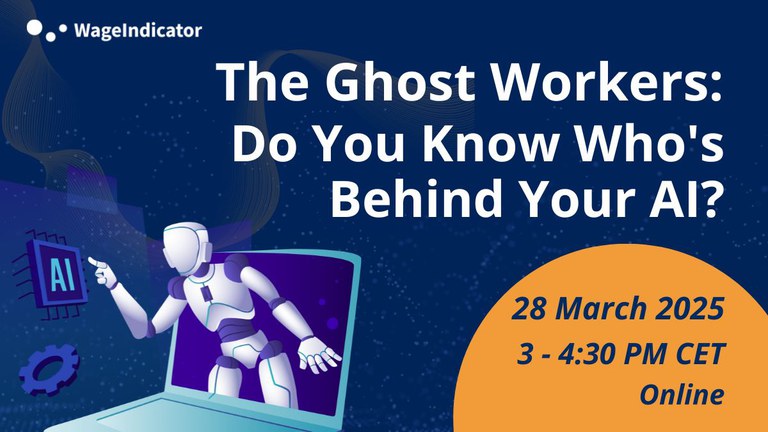About the Event
Chances are that you use the AI systems that have mushroomed in the last few years. You may use them to create text, generate images or write code. Or, unbeknownst to you, they're part of the technology that you use, like self driving cars or content moderating on the social media platforms. One thing's clear - AI is becoming integral to our economy.
But these systems aren't as 'artificial' as they may seem. While the chatbots and LLMs that you interact with and a robo-taxi crossing the streets in the US might seem automated, there's an army of millions of workers making it possible. Whether it's tagging photos to train software for selfdriving cars, cleaning data, or verifying software, they form the invisible backbone of our new AI economy.
But as this fast-growing industry expands, so do the challenges: labour rights, fair wages, and proper regulations are just the beginning. Where the impact of not treating workers well affects not only the workers themselves, but also the quality of AI. With potentially major consequences.
In this webinar, we unpacked the hidden labour behind AI, explored the artificial intelligence human supply chain, and shone light on the realities of workers who deserve to be seen.
Date and Time:
28th March, 2025 | 3 - 4:30 PM CET
Session Recording
Ghost Workers Trailer
Agenda
| 3:00 - 3:05 PM | Introduction to the session |
| 3:05 - 3:30 PM | Roundtable discussion & Q&A on unmasking hidden labour in the AI value chain |
| 3:30 - 3:55 PM | Roundtable discussion & Q&A on risks and problems associated with hidden labour |
| 3:55 - 4:20 PM | Roundtable discussion & Q&A on solutions to the issue |
| 4:20 - 4:30 PM | Concluding remarks |
Our Speakers
 |
Antonio A. Casilli is the author of 'Waiting for Robots' and co-founder of DiPLab. |
 |
Joan Kinyua is the President of the Data Labellers Association, and a former data annotator who played a crucial role in training AI systems. Having experienced the hidden struggles of AI workers firsthand, she is now actively advocating for recognition and fair treatment in the industry. Through her work, she sheds light on the challenges faced by annotators, from low pay to lack of transparency. Joan is committed to ensuring that the voices of AI’s hidden workforce are heard and valued. |
 |
Claartje ter Hoeven is a Professor of Communication and Information Studies at Utrecht University. Her scholarly interests are driven by two questions: how do new digital technologies affect the organization of work and workers’ well-being, and what pragmatic steps can protect and support workers? Currently, she works on the ERC project ‘The Ghostworker’s Well-Being: An Integrated Framework’ on the working conditions and well-being of AI data workers in Europe. |
 |
Lydia Hamid is a Project Coordinator at Gajimu (WageIndicator's Indonesia team). |
 |
Fiona Dragstra is the General Director of the WageIndicator Foundation |
 |
Martijn Arets is a gig economy researcher associated with the WageIndicator Foundation |

